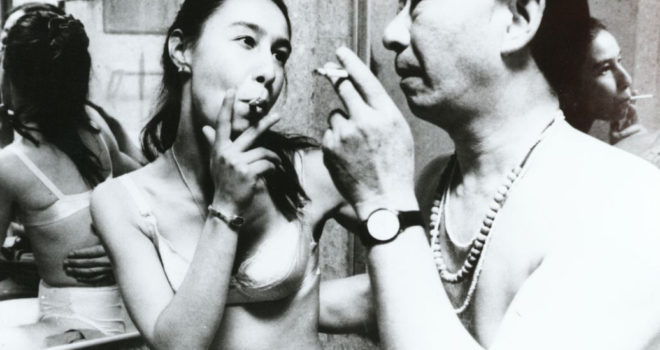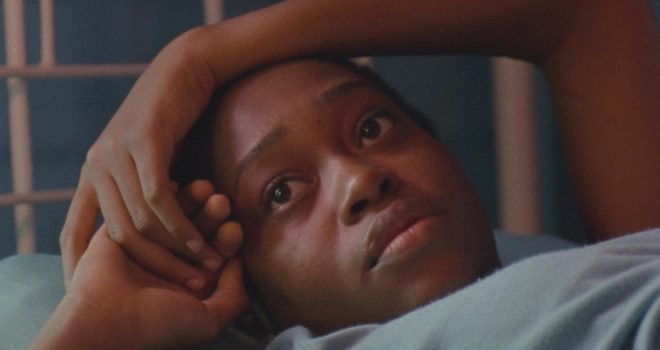Juvenal, a train driver in Belo Horizonte, spends his spare time roaming the town like a ghost. Painfully shy, he seems determined to avoid any kind of social life. The absence of any activity outside of his work is reflected in the minimalist décor of his flat, and the choice of square film format further highlights his solitude. What the author-directors organise is not so much a plot as a muted collision between this man without qualities and Margo, a colleague who is determined to get close to him. Initially portrayed as a character in counterpoint with Juvenal, she soon turns out to be just as lonely, between her Sudoku puzzles and Internet surfing. Anchored in a remarkable sense of visual composition, O Homem das Multidões functions as an accumulation of detail that creates less of a psychology than a timeless existential atmosphere. Although it happily abandons the through-line of the short story on which it is based, Edgar Allan Poe’s The Man of the Crowd, the film transforms its core substance into cinematographic form: “He refuses to be alone. He is the man of the crowd. It will be in vain to follow, for I shall learn no more of him, nor of his deeds.” Charlotte Garson
Home > Films > The Man Of The Crowd
The Man Of The Crowd
(O homem das multidões)
by Marcelo GOMES & Cao GUIMARÃES
- Brazil
- 2012
- Fiction
- Couleur
- 95′
- Portuguese
- Titre français
L’Homme des foules - Original title
O homem das multidões - Titre international
The Man Of The Crowd - Scénario
Cao Guimarães & Marcelo Gomes - Photo
Ivo Lopes Araújo - Montage
Cao Guimarães, Marcelo Gomes & Lucas Sander - Interprétation
Paulo André, Sílvia Lourenço, Jean-Claude Bernardet - Producteur délégué
Beto Magalhães & João Vieira Jr. - Directeur artistique
Marcos Pedroso - Ventes internationales
FiGa Films - Distribution
Norte Distribution : distribution@norte.fr - Support de projection
DCP - Sous-titrage
VOST électronique



